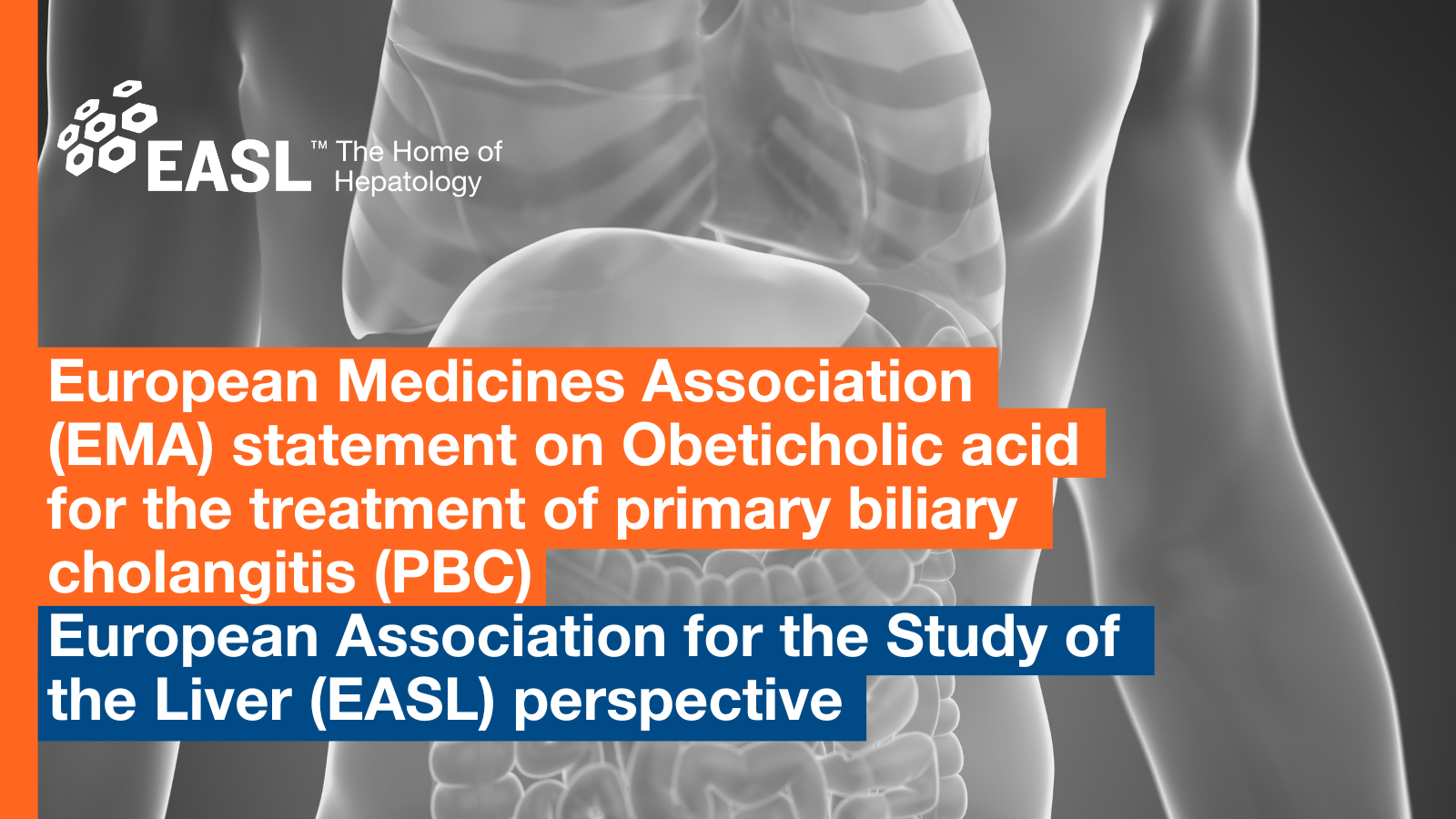European Medicines Association (EMA) statement on Obeticholic acid for the treatment of primary biliary cholangitis (PBC) European Association for the Study of the Liver (EASL) perspective

The EMA human medicines committee (CHMP) has recently issued a statement on Obeticholic acid for the treatment of Primary Biliary Cholangitis (PBC). The CHMP recommended to the European Commission that the market authorisation for Obeticholic acid in the European Union (EU) be revoked (https://www.ema.europa.eu/en/news/ema-recommends-revoking-conditional-marketing-authorisation-ocaliva).
The CHMP recommendation was made following results of a post-market approval, randomised controlled clinical trial (the COBALT trial, 747-302). The study was requested and designed to confirm the benefits and safety of Obeticholic acid. It should be noted that, while baseline demographics were comparable to previous studies, 55% of the participants in the COBALT study presented with (or had) advanced disease, which is in fact a contraindication to treatment with Obeticholic acid according to the revised EMA prescribing indication. Importantly, the study ran when Obeticholic acid was available as part of routine clinical care and therefore, recruitment and retention to the COBALT trial was challenging and the study was probably under-powered for the primary EMA composite endpoint. The study failed to show any significant differences between Obeticholic acid and placebo in the overall population of PBC patients who were either unresponsive or intolerant to ursodeoxycholic acid. The EMA CHMP concluded that the clinical benefits of Obeticholic acid had not been confirmed.
Published real-world evidence evaluating Obeticholic acid over several years (at a population level) add to the body of evidence that contribute to the overall assessment of drug efficacy. While Obeticholic acid treatment in PBC patients with advanced liver disease has shown lower efficacy in real-life cohorts compared to UDCA alone, data from multiple sources show a significant improvement in liver biochemical markers, which are evidence-based validated surrogates for clinically meaningful benefit in PBC patients. Real world evidence also demonstrated a reduction in clinical event rate in patients with earlier stage PBC. This data was not considered by CHMP in their deliberations.
As the European Association for the Study of the Liver (EASL) we have received letters of concern from several national liver associations, PBC patient support groups, and other international bodies given that the decision will lead to the likely loss of an important treatment option for patients in whom treatment modalities are already very limited. The Clinical Practice Guidelines published by EASL, which are established following a rigorous process that carefully examines all available evidence, are followed by the vast majority of hepatologists in Europe.
These clearly recommend the use of Obeticholic acid as second line treatment in those individuals intolerant of ursodeoxycholic acid or with a lack of complete biochemical response to it.
While we understand that confirmation of clinically meaningful benefit may be difficult, and that real-world evidence is influenced by methodological challenges related to the nature of the data source, we are at a critical juncture in drug development not only in PBC but in all rare liver diseases. Randomised clinical trial are the most rigorous instrument to determine the safety and efficacy of a new drug or indication. However, major problems in both the design of clinical trials and the lack of integration of clinical trial results into health care are hampering medicine’s ability to best serve society. As demonstrated by the COBALT trial, it is difficult to retain patients in a placebo-controlled outcomes study when a licensed drug is commercially available and future therapies in development might face even greater challenges in demonstrating outcomes benefit. This is particularly true in rare diseases such as PBC, where recruiting sufficiently large homogenous groups (to overcome issues related to interindividual variability and impact of several confounding factors) is challenging and sometimes impossible.
We write this letter with the hope that the CHMP recommendation might be reconsidered after careful evaluation of all the evidence (taking into account the aforementioned methodological issues), the difficult situation in which many patients in Europe may find themselves, as well as the possibility of adopting a scientifically rigorous real-world evidence-based strategy in the future to benefit all those living with rare liver diseases.
On behalf of the EASL Governing Board
Aleksander Krag, Secretary General
Debbie Shawcross, Vice-Secretary
Massimo Pinzani, Treasurer
Ana Lleo, Scientific Councillor
Sven Francque, Education Councillor
Ahmed El Sharkawy, Internal Affairs Councillor
Francesco Paolo Russo, External Affairs Councillor
Geneva, July 18, 2024

